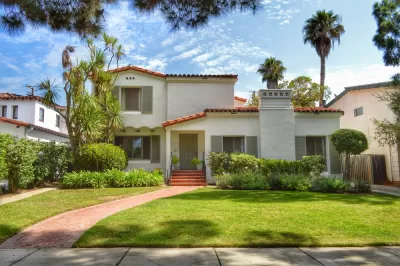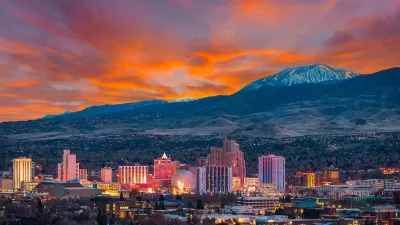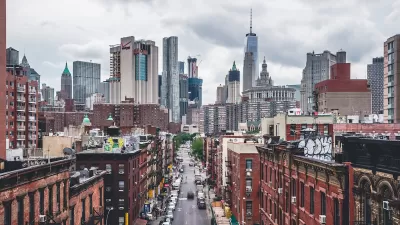As the pandemic shifts housing priorities and costs continue to soar, experts assess the potential for a crash similar to 2008's Great Recession.

With home prices and rents rising across the country, Jerusalem Demsas, writing for Vox, attempts to answer the question, "are we in a housing bubble?"
"[T]here’s no agreed-upon economic definition for an asset bubble," writes Demsas. "And in everyday conversation, it appears to mean 'prices have gone up a lot and I think they’re going to come crashing down again.'" Regardless of the label, Demsas argues that home prices depend "on public policy choices that are in our control."
According to research by Harvard economist Robin Greenwood and his fellow researchers, "just because prices rise really fast doesn’t mean it’s a bubble in danger of popping. The definition needs to be narrower than that." A "frenzied ethos" is also a key component. "In general, what people are looking for to determine if there might be a bubble in housing is that the fast price appreciation is detached in at least some ways from the fundamental reasons why prices increase or decrease normally (like supply or demand)."
Regardless of the bubble status of today's housing market, homeowners and buyers, overall, face less risk than before the 2008 crash. "This isn’t a situation where a ton of people have mortgages that they won’t be able to pay off — the marginal homebuyer is wealthier and more secure than in the lead-up to the Great Recession." But "[p]rices are rising, homeownership is increasingly out of the reach of many Americans, and the alternative (renting) is also increasingly expensive, especially in the most job-rich parts of the country. This is an unhealthy, unstable, and unacceptable state of affairs." Demsas blames restrictive zoning laws for "turning an asset that could be widely available into a scarce one" and suggests that local governments should encourage increased density and more housing production to help supply meet rising demand.
FULL STORY: Is there a housing bubble?

Alabama: Trump Terminates Settlements for Black Communities Harmed By Raw Sewage
Trump deemed the landmark civil rights agreement “illegal DEI and environmental justice policy.”

Study: Maui’s Plan to Convert Vacation Rentals to Long-Term Housing Could Cause Nearly $1 Billion Economic Loss
The plan would reduce visitor accommodation by 25% resulting in 1,900 jobs lost.

Why Should We Subsidize Public Transportation?
Many public transit agencies face financial stress due to rising costs, declining fare revenue, and declining subsidies. Transit advocates must provide a strong business case for increasing public transit funding.

Paris Bike Boom Leads to Steep Drop in Air Pollution
The French city’s air quality has improved dramatically in the past 20 years, coinciding with a growth in cycling.

Why Housing Costs More to Build in California Than in Texas
Hard costs like labor and materials combined with ‘soft’ costs such as permitting make building in the San Francisco Bay Area almost three times as costly as in Texas cities.

San Diego County Sees a Rise in Urban Coyotes
San Diego County experiences a rise in urban coyotes, as sightings become prevalent throughout its urban neighbourhoods and surrounding areas.
Urban Design for Planners 1: Software Tools
This six-course series explores essential urban design concepts using open source software and equips planners with the tools they need to participate fully in the urban design process.
Planning for Universal Design
Learn the tools for implementing Universal Design in planning regulations.
Smith Gee Studio
Alamo Area Metropolitan Planning Organization
City of Santa Clarita
Institute for Housing and Urban Development Studies (IHS)
City of Grandview
Harvard GSD Executive Education
Toledo-Lucas County Plan Commissions
Salt Lake City
NYU Wagner Graduate School of Public Service





























